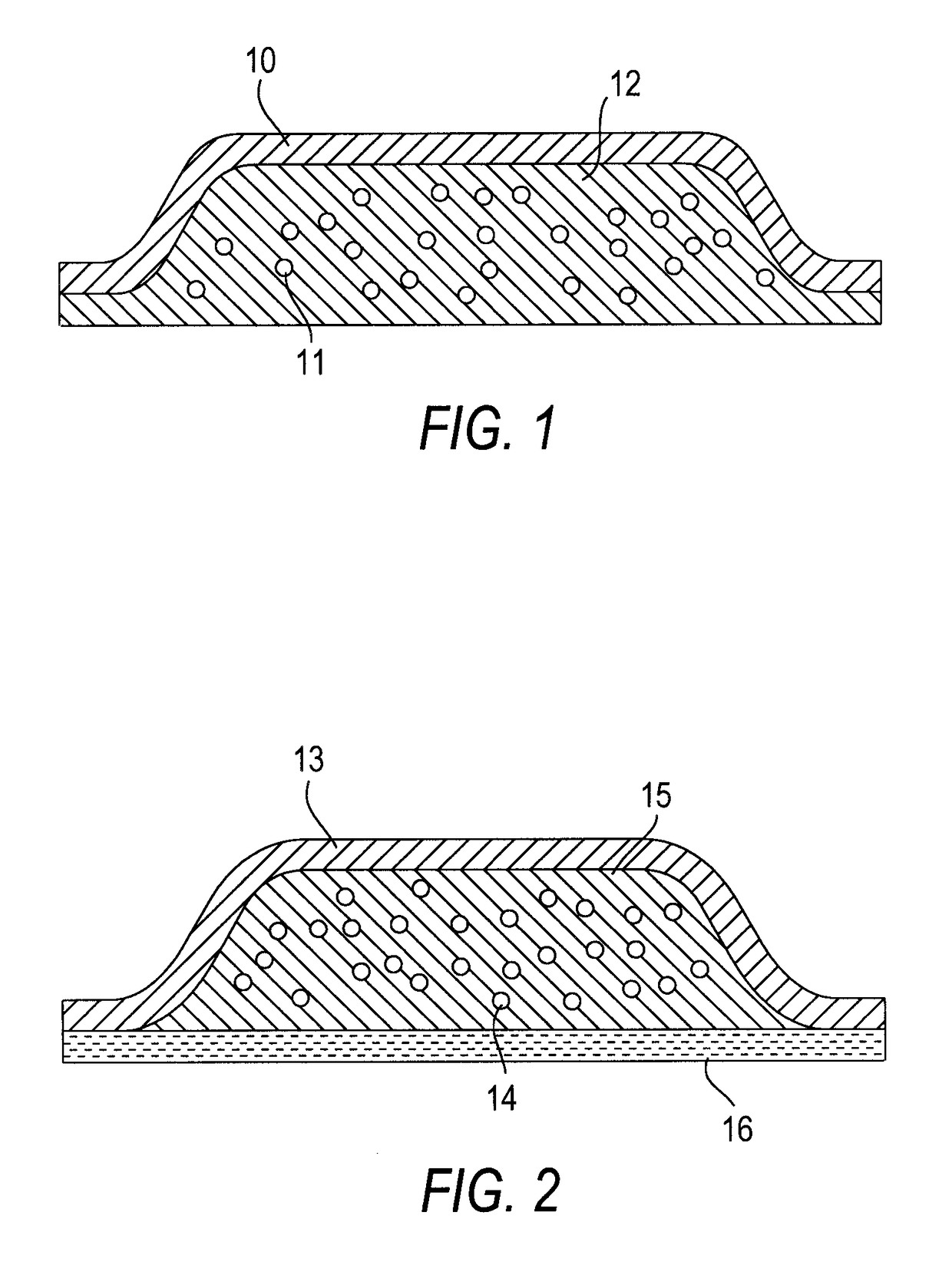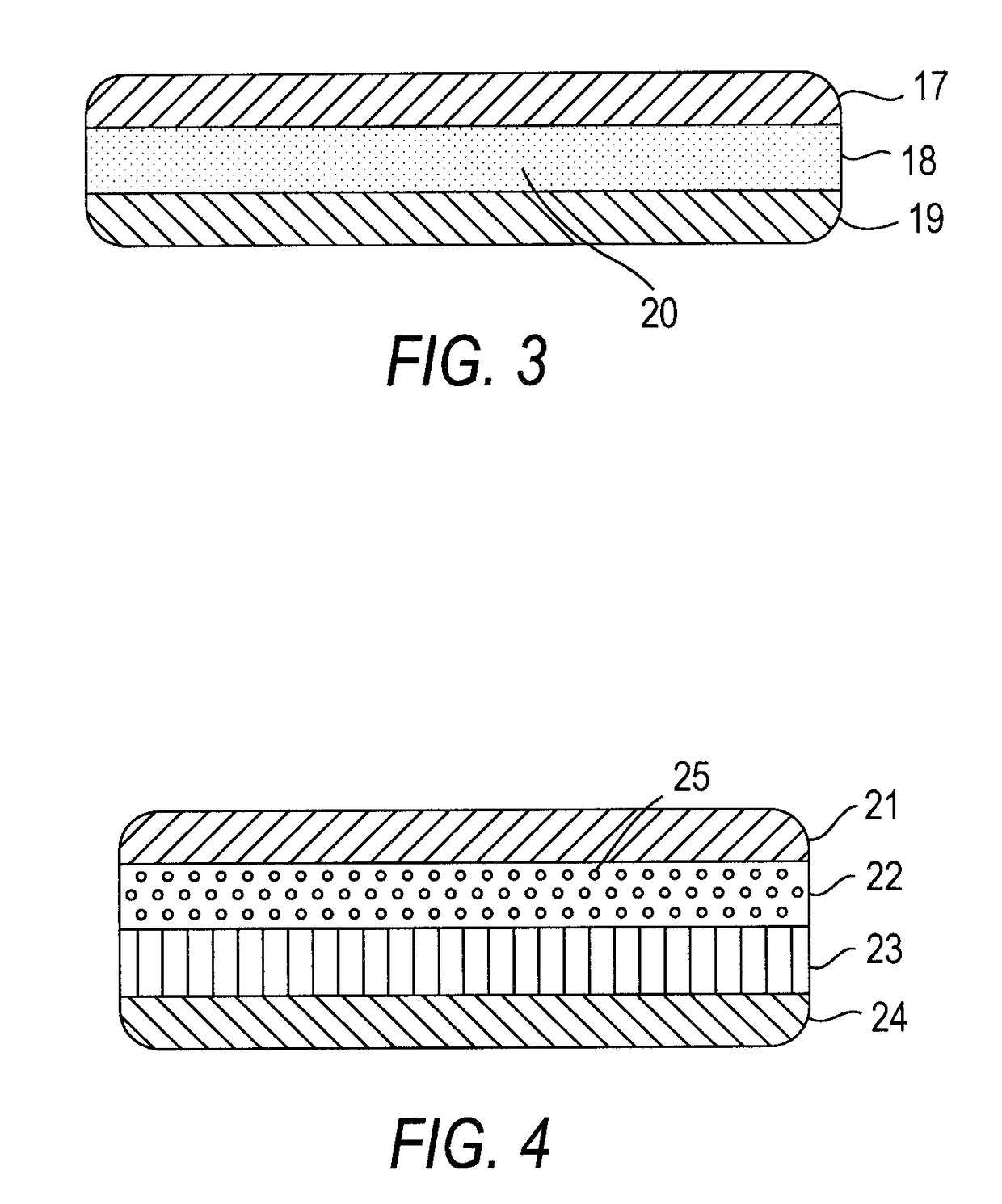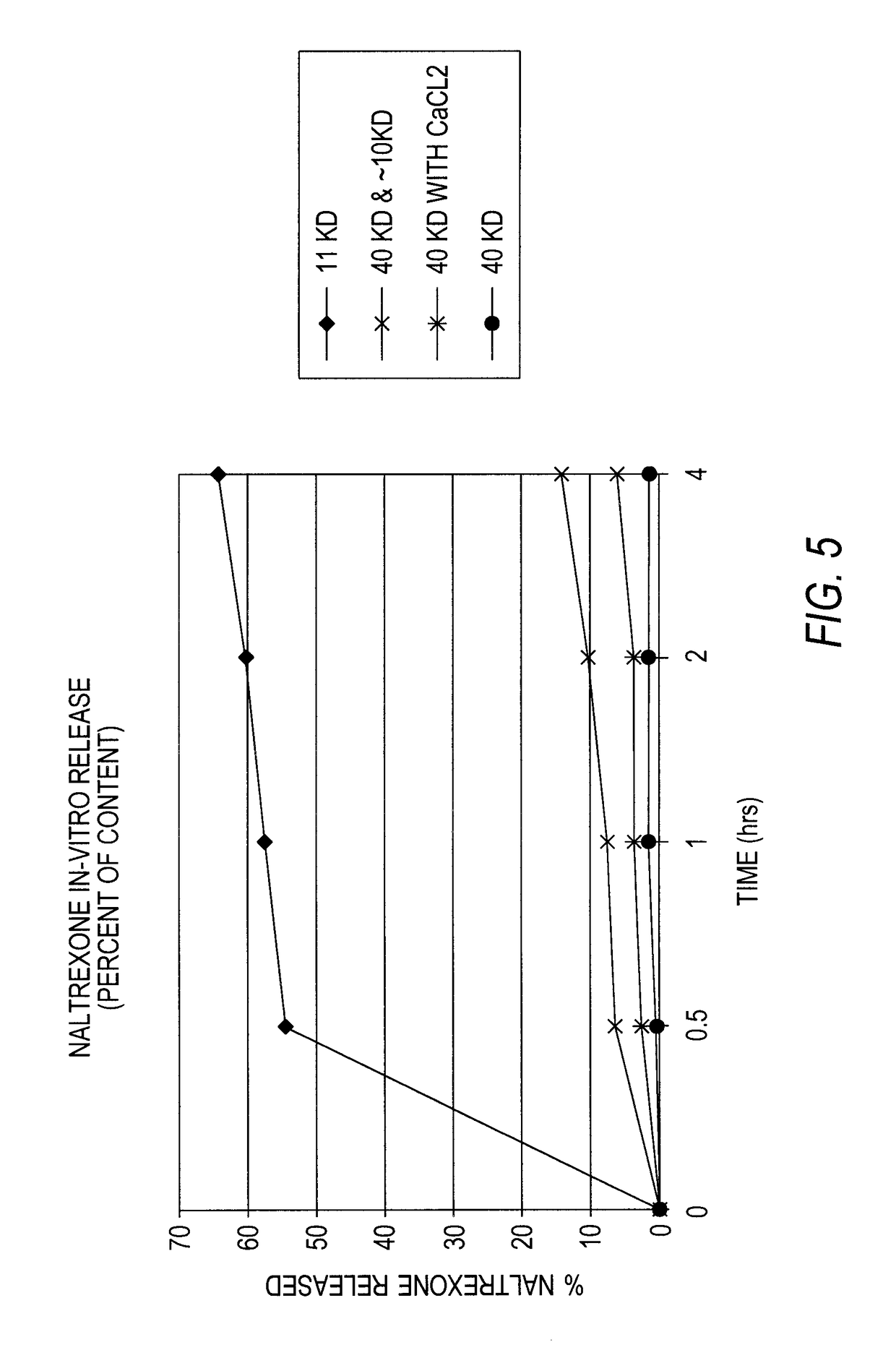Abuse resistant opioid transdermal delivery device containing opioid antagonist microspheres
a technology of microspheres and opioids, which is applied in the direction of bandages, drug compositions, transportation and packaging, etc., can solve the problems of previous “used” transdermal fentanyl delivery devices being subsequently abused for their overage, and achieve the effect of reducing the potential for abus
- Summary
- Abstract
- Description
- Claims
- Application Information
AI Technical Summary
Benefits of technology
Problems solved by technology
Method used
Image
Examples
example 1
[0119]Using the procedure disclosed in this example, multiple batches of naltrexone-loaded microspheres were prepared using different molecular weight Lactide / Glycolide (65:35) polymers (40 KD, 40 KD with 0.01% calcium chloride, 50:50 blend of 40 KD and low molecular weight (about 10 KD) and 11 KD)
[0120]Naltrexone-loaded microspheres were fabricated using a water-in-oil-in-water (w / o / w) double-emulsion solvent extraction / evaporation technique. In this process, naltrexone was dissolved in phosphate-buffered saline (PBS) (pH 7.4) solution containing 0.05% (w / v) polyvinylalcohol (PVA) as an emulsifier and mixed with ethyl acetate containing poly(lactic-co-glycolic acid) (PLGA). The emulsification was carried out by sonication for 15 seconds. The resulting emulsion was further injected into PBS (pH 7.4) containing 0.05% (w / v) PVA as an emulsifier to produce a double w / o / w emulsion. The dispersion was then stirred at a constant temperature for 30 minutes. In order to extract ethyl acetat...
example 2
[0122]The microsphere prepared in Example 1 were exposed to simulated extraction conditions to determine the degree of in-vitro release of naltrexone from the microspheres. The extractions were performed using 0.5N NaCl, pH 6.5 phosphate buffer. The sample size was 100 mg microspheres and the naltrexone release was measures at 0.5, 1 and 4 hours. The results are set forth in Table 2 and FIG. 5.
TABLE 2Ntx Content(per 100 mgRelease atRelease atRelease atPolymermicrosphere)30 minutes1 hour4 hours40 KD28.8 mg as54.7%57.8%64.6%Base40 KD and 0.01%42.2 mg as01.2%1.2%Calcium chlorideBase50:50 blend of 4039.3 mg as6.4%7.6%14.0%KD and lowBasemolecular weight(about 10 KD)11 KD42.3 mg as2.4%3.5%5.9%Base
Based on the amount of antagonist released from any given microsphere formulation, the amount of antagonist loaded into the microspheres can be adjusted in order to obtain the release of a desired amount upon tampering.
example 3 (
Prophetic)
[0123]Microspheres are prepared as follows. Naltrexone is mixed with requisite amounts of gelatin, Tween 80 and water, and heated. The mixture is then dispersed in a mixture of aluminum monostearate, Span 80 and soybean oil to form a microemulsion. The microemulsion is homogenized by a microfluidizer. Thereafter, the microemulsion is dispersed in a PLGA-acetonitrile solution. The acetonitrile is then removed from the emulsion by evaporation under atmospheric pressure, thereby forming microspheres containing naltrexone to be incorporated into a transdermal delivery device.
PUM
| Property | Measurement | Unit |
|---|---|---|
| mean diameter | aaaaa | aaaaa |
| pH | aaaaa | aaaaa |
| size | aaaaa | aaaaa |
Abstract
Description
Claims
Application Information
 Login to View More
Login to View More - R&D
- Intellectual Property
- Life Sciences
- Materials
- Tech Scout
- Unparalleled Data Quality
- Higher Quality Content
- 60% Fewer Hallucinations
Browse by: Latest US Patents, China's latest patents, Technical Efficacy Thesaurus, Application Domain, Technology Topic, Popular Technical Reports.
© 2025 PatSnap. All rights reserved.Legal|Privacy policy|Modern Slavery Act Transparency Statement|Sitemap|About US| Contact US: help@patsnap.com



